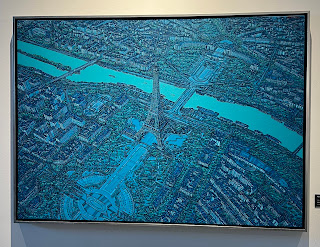RSB
Anton Bruckner’s “Imperial Symphony” in Berlin: A Majestic Evening with the RSB and Vladimir Jurowski
Berlin’s devoted classical audience gathered in the Großer Saal of the Philharmonie on Sunday, 8 February 2026, for a profound encounter with Anton Bruckner’s Symphony No. 8 in C minor (WAB 108), widely known as the “Imperial Symphony.” The Rundfunk-Sinfonieorchester Berlin (RSB), under its Chief Conductor Vladimir Jurowski, with assistance from Ralf Sochaczewsky, shaped the monumental score with concentration, dignity, and impressive unity.
The Performance
The program was devoted entirely to the symphony in the 1887 version, presented in Robert Haas’s landmark edition.
Given without intermission, the four vast movements unfolded in a single, sweeping arc of roughly ninety minutes:
• Allegro moderato
• Scherzo: Allegro moderato
• Adagio: Feierlich langsam, doch nicht schleppend
• Finale: Feierlich, nicht schnell
Jurowski balanced architectural control with a patient sense of spiritual breadth. Climaxes grew organically rather than theatrically, nowhere more moving than in the luminous Adagio. The Finale rose with granite-like inevitability, crowned by blazing yet disciplined brass.
This Berlin appearance followed the performance on Friday, 6 February, at the Konzerthaus, recorded for broadcast by radio3 rbb.
A Chilly Berlin Welcome
Winter held the city in its familiar February grip—cold air, grey skies, and patches of ice still lining the streets. Yet the Philharmonie was close to capacity, a testament to the city’s unwavering appetite for great symphonic music and to the magnetism of a major Bruckner interpretation.
A Sonic Cathedral
Programming the Eighth Symphony on its own is an artistic statement. It invites the audience to step fully into Bruckner’s immense cathedral of sound, undistracted and unhurried. Jurowski resisted excess, trusting the composer’s architecture. The orchestra responded with remarkable cohesion; strings sustained long paragraphs with calm authority, while the brass combined power with noble warmth, particularly in the final peroration.
When the great C-major conclusion finally subsided, a moment of deep, collective silence filled the hall before applause broke out—long, grateful, and heartfelt. Musicians and conductor alike appeared aware that they had traversed one of the repertoire’s highest summits.
Audience and Additional Notes
Many listeners later shared their admiration online, praising the performance’s endurance, clarity, and emotional sincerity.
The evening had been thoughtfully framed. A pre-concert talk by musicologist Steffen Georgi in the Südfoyer introduced the Haas edition and its place within Bruckner performance history. Inside the hall, the Philharmonie’s customary rules—particularly the prohibition of audio and video recording—helped preserve the atmosphere of concentration.
An uplifting and memorable night, presenting Bruckner in all his monumental grandeur.
— Haluk Direskeneli, Berlin
⸻



